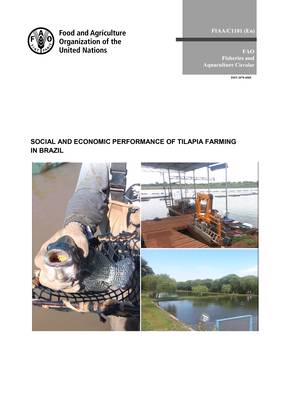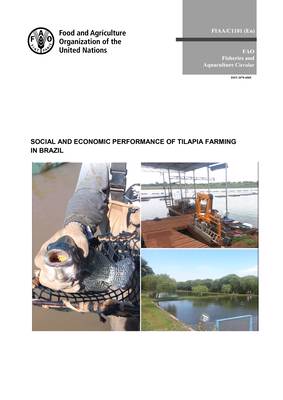
- Afhalen na 1 uur in een winkel met voorraad
- Gratis thuislevering in België vanaf € 30
- Ruim aanbod met 7 miljoen producten
- Afhalen na 1 uur in een winkel met voorraad
- Gratis thuislevering in België vanaf € 30
- Ruim aanbod met 7 miljoen producten
Zoeken
Social and Economic Performance of Tilapia Farming in Brazil
Renata Melon Barroso, Food and Agriculture Organization, Andrea Elena Muaoz
€ 69,95
+ 139 punten
Omschrijving
This document assesses tilapia farming and the value chain in Brazil by examining tilapia farming technology and practices, evaluating the sector's social and economic performance, discussing the importance of proper governance, and highlighting opportunities and challenges in the development of tilapia farming, as well as aquaculture in general, in Brazil. The analysis shows that, in Brazil, agribusiness has undergone profound changes in the past few decades, and technological innovations have made the country one of the largest food exporters in the world. Tilapia has been the largest aquaculture item, contributing to nearly half of the country's aquaculture production tonnage in 2017. Aquaculture production increased 14 percent annually, from 13 000 tonnes in 1987 to 595 000 tonnes in 2017, making it a regional aquaculture powerhouse that represented 20 percent of production in Latin America and the Caribbean in 2017. However, institutional instability and regulatory uncertainties pose a challenge to the development of the tilapia industry. For this reason, the report suggests improving public-private partnerships to create an enabling environment for Brazil to fully harness its comparative advantages in tilapia farming. Participatory communication and consultation would also help to create a road map to help Brazil's tilapia aquaculture develop into an economically viable, environmentally sustainable and socially responsible sector.
Specificaties
Betrokkenen
- Auteur(s):
- Uitgeverij:
Inhoud
- Aantal bladzijden:
- 51
- Taal:
- Engels
- Reeks:
Eigenschappen
- Productcode (EAN):
- 9789251316191
- Verschijningsdatum:
- 24/08/2019
- Uitvoering:
- Paperback
- Formaat:
- Trade paperback (VS)
- Afmetingen:
- 210 mm x 297 mm
- Gewicht:
- 208 g

Alleen bij Standaard Boekhandel
+ 139 punten op je klantenkaart van Standaard Boekhandel
Beoordelingen
We publiceren alleen reviews die voldoen aan de voorwaarden voor reviews. Bekijk onze voorwaarden voor reviews.











